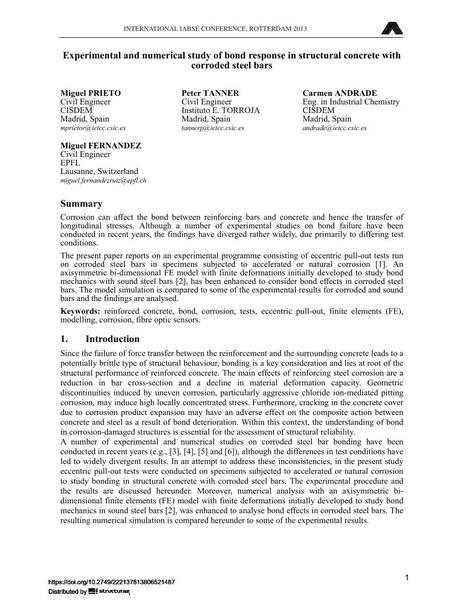Experimental and numerical study of bond response in structural concrete with corroded steel bars

|
|
|||||||||||
Détails bibliographiques
| Auteur(s): |
Miguel Prieto
Peter Tanner Carmen Andrade Miguel Fernandez |
||||
|---|---|---|---|---|---|
| Médium: | papier de conférence | ||||
| Langue(s): | anglais | ||||
| Conférence: | IABSE Conference: Assessment, Upgrading and Refurbishment of Infrastructures, Rotterdam, The Netherlands, 6-8 May 2013 | ||||
| Publié dans: | IABSE Conference, Rotterdam, May 2013 | ||||
|
|||||
| Page(s): | 554-555 | ||||
| Nombre total de pages (du PDF): | 8 | ||||
| Année: | 2013 | ||||
| DOI: | 10.2749/222137813806521487 | ||||
| Abstrait: |
Corrosion can affect the bond between reinforcing bars and concrete and hence the transfer of longitudinal stresses. Although a number of experimental studies on bond failure have been conducted in recent years, the findings have diverged rather widely, due primarily to differing test conditions. The present paper reports on an experimental programme consisting of eccentric pull-out tests run on corroded steel bars in specimens subjected to accelerated or natural corrosion [1]. An axisymmetric bi-dimensional FE model with finite deformations initially developed to study bond mechanics with sound steel bars [2], has been enhanced to consider bond effects in corroded steel bars. The model simulation is compared to some of the experimental results for corroded and sound bars and the findings are analysed. |
||||
| Mots-clé: |
tests
|
||||
